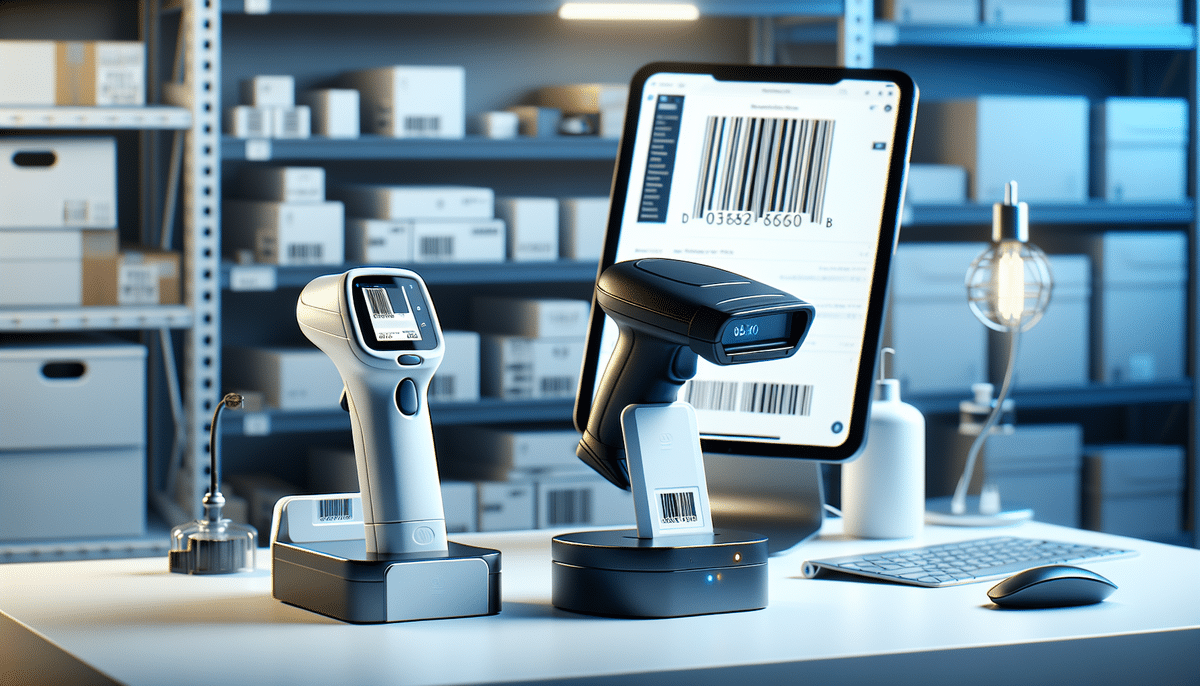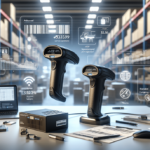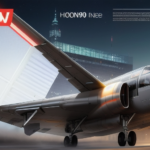Symbol LS2208 vs Zebra DS8178: Comprehensive SEO-Optimized Comparison
When selecting a high-performance, reliable barcode scanner for your business, the Symbol LS2208 and the Zebra DS8178 are two prominent options to consider. Both scanners are produced by Zebra Technologies, a renowned leader in the barcode scanning industry. This detailed comparison explores their specifications, features, and suitability for various business needs, empowering you to make an informed decision.
Key Features Comparison
Connectivity
The primary distinction between the Symbol LS2208 and the Zebra DS8178 lies in their connectivity options. The LS2208 is a wired scanner that connects via a USB cable, ensuring a stable and continuous connection without the need for battery management. In contrast, the DS8178 offers wireless capabilities with Bluetooth and Wi-Fi connectivity, allowing seamless integration with computers or mobile devices without the constraints of cables. This wireless functionality enhances mobility and flexibility in dynamic environments.
Scanning Range
The LS2208 effectively scans barcodes up to 17 inches away, making it suitable for standard barcode scanning needs. On the other hand, the DS8178 extends this range to 24 inches, which is ideal for scanning larger or bulkier items. This extended range can significantly improve efficiency in settings such as large warehouses and retail stores with high shelves.
Durability
Durability is another key difference between the two models. The Zebra DS8178 boasts superior durability, capable of withstanding drops from up to six feet. In comparison, the LS2208 has a drop tolerance of up to five feet. This enhanced durability makes the DS8178 more suitable for demanding environments where accidental drops are common.
Design and Form Factor
The Symbol LS2208 features a compact, handheld design weighing approximately 5.2 ounces. Its ergonomic shape ensures comfort during prolonged use, and its rugged, high-impact plastic construction provides longevity, making it suitable for high-volume, fast-paced settings like retail and manufacturing.
Conversely, the Zebra DS8178 presents a sleek, modern form factor with a wireless design complemented by a charging cradle. This cradle not only charges the scanner but also keeps it easily accessible. The DS8178's slim, ergonomic build ensures comfort during extended scanning sessions, while its vibrant color screen and haptic feedback enhance user interaction by confirming successful scans.
Performance
The Symbol LS2208 excels in reading 1D barcodes with remarkable accuracy, achieving a scanning speed of up to 100 scans per second. This makes it a reliable choice for environments with high scanning demands. It is also compatible with various point-of-sale systems, simplifying integration.
The Zebra DS8178 elevates performance with its wireless connectivity and advanced scanning technology. It offers omnidirectional scanning, enabling barcode reads from any angle, and demonstrates superior decoding capabilities for poorly printed or damaged barcodes, which is particularly beneficial in healthcare and logistics sectors. Furthermore, the DS8178 is capable of reading both 1D and 2D barcodes, including QR codes and PDF417 formats, broadening its applicability.
Barcode Scanning Capabilities
The Symbol LS2208 specializes in 1D barcode scanning, effectively reading formats such as Code 128, Code 39, and UPC. Its 17-inch scanning range is suitable for most standard barcode scanning needs, supported by a user-friendly trigger button for easy operation.
In contrast, the Zebra DS8178 offers advanced barcode scanning capabilities, handling both 1D and 2D barcodes, including QR codes and PDF417. Its extended 24-inch range and built-in laser targeting pattern facilitate precise scanning from greater distances, making it ideal for environments like large warehouses and retail stores with high shelves.
Battery Life
The Symbol LS2208's wired design eliminates the need for a battery, ensuring uninterrupted usage as long as it remains connected to a power source. This eliminates downtime associated with charging or battery replacement.
On the other hand, the Zebra DS8178 is equipped with a rechargeable battery that offers up to 24 hours of continuous scanning on a single charge. The integrated charging cradle not only powers the device but also keeps it within easy reach. Additionally, the battery gauge provides real-time updates on remaining battery life, ensuring users are aware when recharging is necessary.
Warranty and Support
Both the Symbol LS2208 and the Zebra DS8178 come with a three-year manufacturer warranty covering defects in materials and workmanship, with options to extend the warranty up to five years. Zebra Technologies offers comprehensive customer support, including phone and email assistance, software downloads, and detailed product manuals. The DS8178 further benefits from Zebra's EasyCare service, which provides next-day replacement for malfunctioning units, ensuring minimal disruption to business operations.
Pricing
The Symbol LS2208 is an economical choice, typically priced around $75, making it ideal for small businesses or startups with budget constraints. Its straightforward connectivity and reliable performance offer excellent value for money.
In contrast, the Zebra DS8178 is a premium scanner, with prices starting at approximately $500. This higher investment is justified by its advanced features, wireless capabilities, and extended scanning range, which are particularly beneficial for larger enterprises seeking to enhance their operational efficiency and streamline barcode scanning processes.
Pros and Cons
Symbol LS2208 Barcode Scanner
Pros:
- Budget-friendly price point
- Easy connectivity and integration
- Accurate scanning capabilities for most 1D barcodes
- Sleek, ergonomic design for comfortable use
Cons:
- No wireless connectivity options
- Inability to read 2D barcodes
- Limited scanning range compared to the Zebra DS8178
Zebra DS8178 Barcode Scanner
Pros:
- Wireless connectivity options
- Extended scanning range for larger or bulkier items
- Omnidirectional scanning for flexible barcode targeting
- Capability to read both 1D and 2D barcodes, including QR codes
Cons:
- Higher price point compared to the Symbol LS2208
- Potentially excessive features for small businesses
- Dependency on battery power requires regular charging
Choosing the Right Barcode Scanner for Your Business
Selecting the optimal barcode scanner involves assessing your business’s specific requirements, including budget constraints, scanning needs, connectivity preferences, and industry-specific demands. If your business operates on a tight budget and primarily utilizes 1D barcodes, the Symbol LS2208 offers a reliable and cost-effective solution. However, if your operations require versatile scanning capabilities, wireless connectivity, and robust performance, investing in the Zebra DS8178 will provide enhanced efficiency and scalability. Consider conducting a needs assessment and evaluating usage environments to determine the best fit for your organization.
For more detailed information and support, visit Zebra Technologies.






















